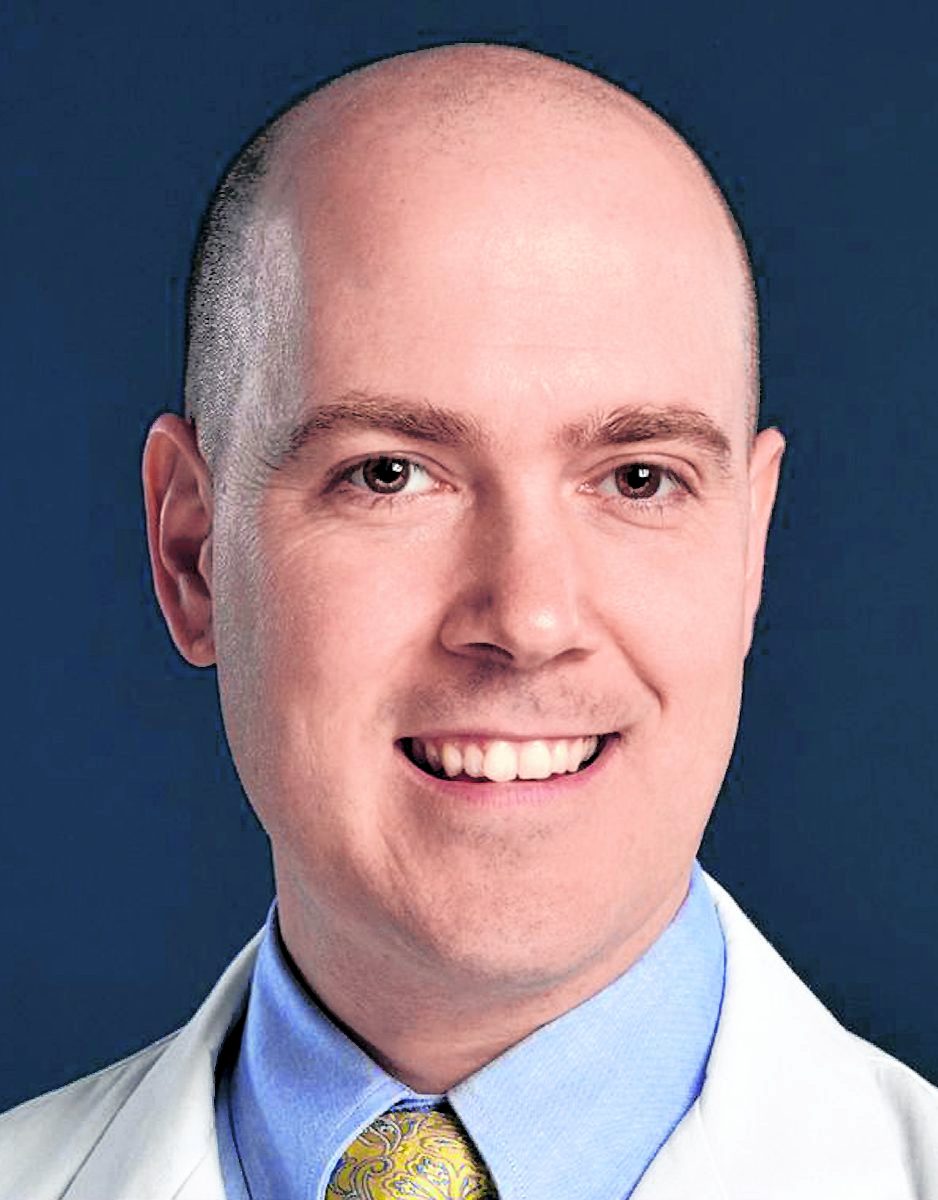
The COVID-19 pandemic has been especially hard on those suffering from addiction.
Increasing rates of anxiety and depression are pushing people to unhealthy habits to cope with the stress.
Dr. Ryan Sarver, a family physician with Schneck Primary Care in Seymour, said he and his staff want those people to know there is hope.
“Please reach out if anyone you know is struggling with anxiety, depression or addiction,” he said. “We have treatments, and we can get them into treatment often the same or next day.”
One of the newest options is suboxone medication-assisted treatment.
Suboxone is a prescription medicine used to treat adults who are addicted to opioid drugs (either prescription or illegal). The treatment is a whole-patient approach that uses medications in combination with counseling and behavioral therapies to treat substance use disorders.
Sarver said he initially proposed the idea to offer suboxone to patients in Jackson County, and Schneck Medical Center leadership has been very supportive of the initiative.
Discussions started in August, agreements to procure medical equipment and contracts for testing were finalized in late fall and the program was opened to the public the first part of January, he said.
On April 26, he gave a presentation on the new treatment during the Schneck board of trustees meeting.
“As we come to more fully understand addiction as a disease of the brain, family physicians and primary care providers as a whole are being called to offer these lifesaving medications nationwide, and the residents of Jackson County deserve access to the highest level of medical care,” Sarver said.
Jackson County and most of rural America is in the midst of an epidemic from opiate use, and that’s responsible for more lives lost than car accidents, he said. Plus, overdose deaths have accelerated during the COVID-19 pandemic.
According to the Centers for Disease Control and Prevention, 70,630 drug overdose deaths occurred in the United States in 2019, and nearly 841,000 people have died since 1999 from a drug overdose.
“As a medical community, we have been called upon by the highest levels of government to reduce opiate deaths in our communities,” Sarver said. “Doctors prescribing are part of the reason people get hooked on opiates, and we have to be the solution, which is one of the reasons that I thought this really should be part of primary care, and that’s what we’re doing at Schneck now.”
Suboxone treatment is available for people who are dependent on opioids, including oxycodone, OxyContin, morphine, MSContin, Percocet, codeine and heroin. They must agree to the program contract and guidelines and counseling and establish care in a Schneck Primary Care office.
The first office visit includes an extensive history of their opiate use disorder, a full physical exam, a urine drug screen, an INSPECT report, blood work, an explanation of the program and contract and referrals.
Sarver said the initial visit typically lasts 20 to 30 minutes, depending on how extensive the person’s medical history is.
Subsequent visits involve a review of how the patient is doing in the program, a pill count, a urine drug screen, a clinical opiate withdrawal scale assessment and a follow-up on any additional patient needs.
“It’s maybe a 10-, 15-minute visit. It’s one of my favorite visits of the day,” Sarver said.
The office visits go from weekly to monthly over time, and Sarver said the cost of the medication is covered by insurance or Medicaid.
The ultimate goal of MAT is full recovery. The treatment approach has been shown to improve patient survival, increase retention in treatment, decrease illicit opiate use and other criminal activity among people with substance use disorders, increase patients’ ability to gain and maintain employment and improve birth outcomes for pregnant women with substance use disorders.
“Once they are on this medicine, they feel more normal. They feel like they can return to their normal lives,” Sarver said. “They get back in with their family members. They start finding employment.”
He said studies support continuing the medication indefinitely to reduce patient mortality; however, patients can begin to wean after 18 months.
If a patient wishes to discontinue daily therapy, Sarver said there is a long-acting injectable version of the oral medication that is once every three months. If patients want to discontinue opioid therapy, a long-acting opioid blocker called Naltrexone is a once-monthly injection, he said.
Currently, Sarver said he has nine patients receiving the suboxone treatment at Schneck Primary Care. He has had nearly 100 visits with them and said the retention is excellent.
Among the patients are people who have been released from jail and have a history of opiate use.
Schneck Trustee Matt Reedy, who also is president of the Jackson County Commissioners, said he was happy to hear that.
“I see so many benefits of this,” Reedy said. “I could see this driving down theft and all kinds of numbers we look at every month (in the jail report). I think that’s going to be a game changer.”
Schneck Primary Care Nurse Practitioner Velvet Schmidt also is qualified to offer the MAT for opiate use disorder, and Sarver offers treatment for those with alcohol or methamphetamine use disorder, too.
“Both Velvet and myself are welcoming new patients who would like to start care with us,” Sarver said.
He also would like to see other providers join in the effort.
“That is our goal. I think it should be part of all primary care offices and this office to patients,” Sarver said. “If (a patient wants) to keep their doctor and they want to see me for suboxone, I will allow that so at least we can get that medicine in their hands.”
[sc:pullout-title pullout-title=”At a glance” ][sc:pullout-text-begin]
Dr. Ryan Sarver is a family physician with Schneck Primary Care, 1124 Medical Place, Seymour.
For information, call 812-522-1613.
[sc:pullout-text-end]
